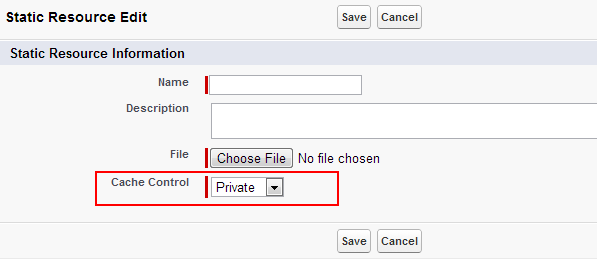While creating a static resource there is an option for specifying Cache Control, This contains two values Public and Private.

What does these values actually control?.
Initially had an Idea that if its public, it can be refered from outside salesforce.
